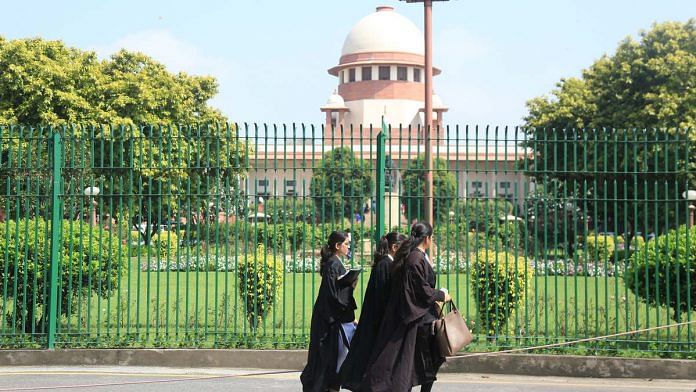New Delhi: Law must be taught in English and in respective states’ regional languages so that legal transactions in lower courts can happen faster, the Narendra Modi government’s New Education Policy (NEP) draft has recommended.
At present, law is taught only in English and degrees are given through three-year and five-year courses.
The NEP draft, formulated by a committee headed by eminent scientist K. Kasturirangan, suggested that state institutions offering legal education must consider providing bilingual education in English and in their state’s vernacular language.
The committee said legal transactions in lower courts are still done in regional languages, causing delay in the legal outcome as a case can only move ahead once its documents have been translated, and, therefore, bilingual education will help.
The NEP has been in the news for some time now over the ‘Hindi vs Tamil’ debate.
Also read: Modi govt’s new education policy draft wants separate body for research & innovation
‘Lack of resources’ to teach law in local languages
Those who work in the legal field have mixed opinions about the proposal. While some said it is a good idea and can be helpful, others said the government should be careful with its implementation.
Harpreet Singh Brar, chairman of Punjab and Haryana Bar Council, said in the trial courts the evidence is recorded in the respective state’s local language as well as in English.
“I don’t think making bilingual legal education will help the Indian judicial system in any way. The world has become a global village and we should rather have ethical education mandatory. This is all a political rhetoric and a plan to connect Hindi to nationalism,” he said.
Siddhartha Mukhopadhyay, vice-chairman of Bar Council of West Bengal, said there should be a proper structure before the government starts teaching law in regional languages.
“We are from West Bengal and we would always want law to be taught in our state’s language, Bangla,” he said.
Mukhopadhyay, however, said there will be challenges in teaching law in Bangla as there aren’t enough books on this subject in Bangla.
“Unless there are good resources, how can law be taught in Bangla? Secondly, in the district courts, arguments are advanced in Bangla, but the substantive aspect of law is looked at in English and this is similar with the high courts,” he said. He also said that there are so many legal words and jargons that are very difficult to comprehend in Bangla.
Dr Tahali Charan Mohanty, senior advocate and chairman of Bar Council of Odisha, also expressed concern over interpretation of different words in vernacular languages.
“At present, I do not see this scheme of bilingual legal education being a possibility because there is an acute dearth of translation of law into local languages. For example, in Odiya, Advocate General is called ‘Moha Bhondo’, which is not a correct word and is borderline abusive. So, this idea is welcomed, but practically it is not possible until the complete translation of texts is over,” Mohanty said.
Also read: Get rid of M.Phil in India — Modi govt’s new education policy draft recommends
NEP draft suggests translation cells
To implement bilingual legal education, the NEP draft stated that a host of measures will be undertaken such as inducting teachers who are well-versed in their regional language as well as English, making text books and study materials available in both languages, and allowing students to write exams in either of the languages.
The draft also suggested setting up of special cells for translating legal materials from a local language to English and vice-versa, and students who are fluent in both languages should be invited or incentivised to contribute to the work of translation cells.



